The Troubles: Alex Maskey's historical convictions quashed
- Published
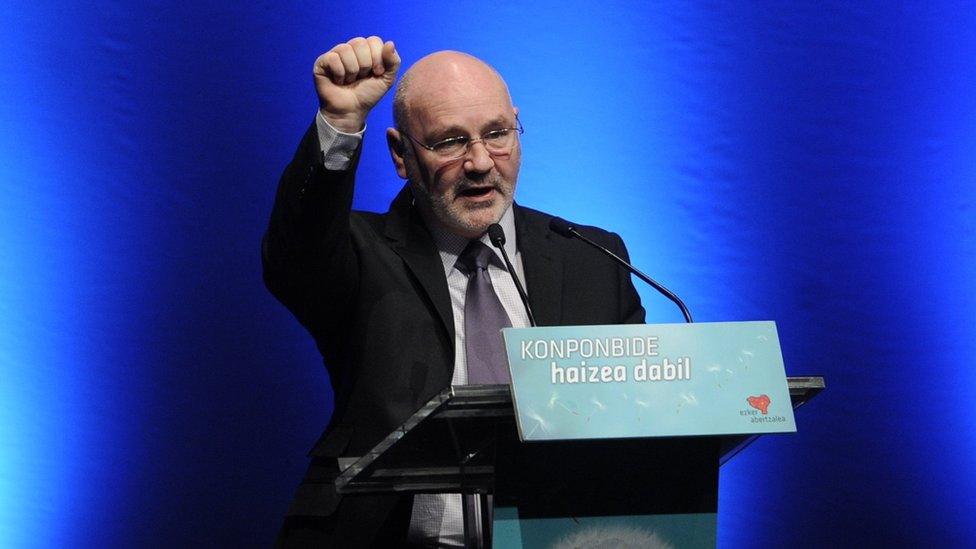
Stormont speaker, Alex Maskey, was interned at Long Kesh in 1970
Stormont speaker Alex Maskey and his wife Elizabeth's convictions for trying to escape from prison are to be quashed.
Senior judges from the Court of Appeal ruled the couple had been unlawfully detained during the 1970s.
This was because their periods of internment were not personally authorised by the NI secretary.
Mr Maskey served as Sinn Féin's first Lord Mayor of Belfast from 2002 to 2003.
He has been a member at Stormont since 1998, representing the West and South Belfast constituencies, before announcing his intention to stand down in 2021.
Mr Maskey was appointed Speaker of the Northern Ireland Assembly in 2020, a role which he still technically holds as political stalemate continues.
He described today's outcome as "righting a wrong" in British Government policy at the time.
"They had scant regard for their own laws; internment was an unmitigated disaster," he said.
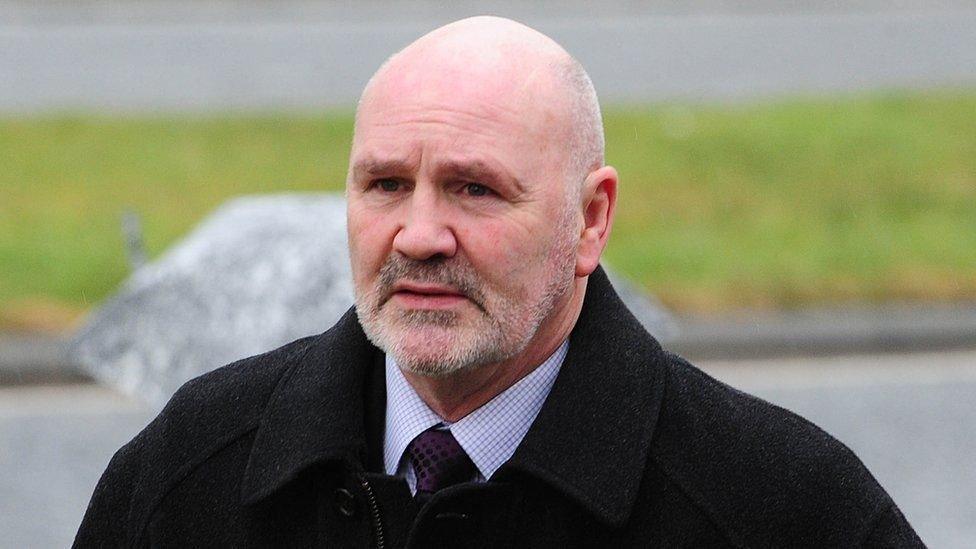
Alex Maskey became Sinn Féin's first Lord Mayor of Belfast, serving from 2002 to 2003
On 9 August 1971, Prime Minister Brian Faulkner used the Special Powers Act to introduce internment without trial for those suspected of being involved in violence during the early stages of the Troubles.
More than 1,900 people suspected of being members of paramilitary organisations were detained, but many were arrested based on flawed intelligence.
Mr Maskey, 70, had been interned at Long Kesh internment camp - later known as the Maze Prison - in December 1972.
He was convicted of attempting to escape from lawful custody in March 1973 and sentenced to six-months imprisonment.
In the same month his future wife, then Elizabeth McKee, mounted a bid to break out of Armagh Jail, where she had been similarly held without trial.
She was also found guilty of attempting to escape, receiving a nine-month sentence.
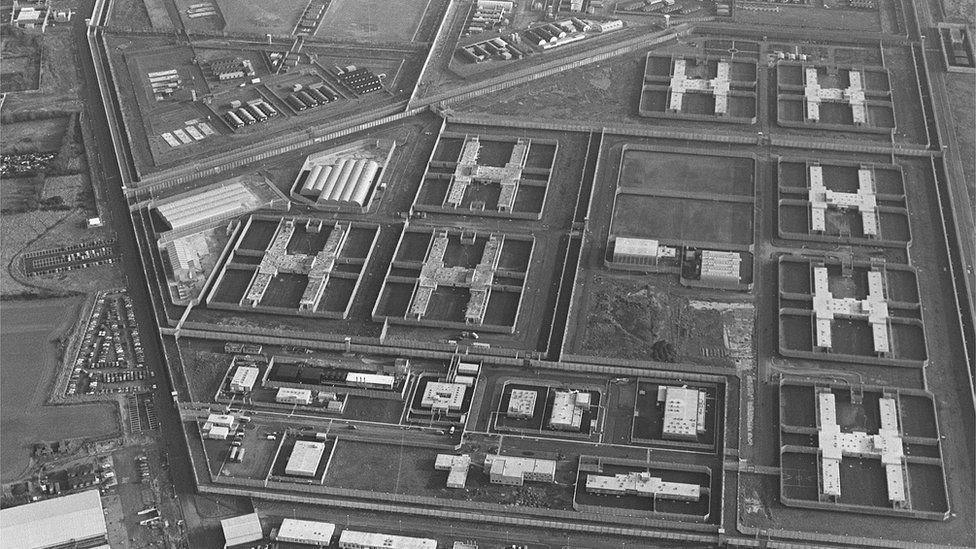
Those arrested under internment were imprisoned in the Maze, previously known as Long Kesh
In 2020, the Supreme Court quashed Gerry Adams' convictions for twice trying to escape from Long Kesh in 1973 and 1974.
The judge said Mr Adams' detention was unlawful because it had not been "considered personally" by secretary at the time, William Whitelaw.
The former Sinn Féin leader welcomed the Supreme Court's decision, saying internment without trial "set aside the normal principles of law and was based on a blunt and brutal piece of coercive legislation".
"There is an onus on the British government to identify and inform other internees whose internment may also have been unlawful," he said.
Mr Adams is currently challenging a Department of Justice decision to refuse a compensation pay-out.
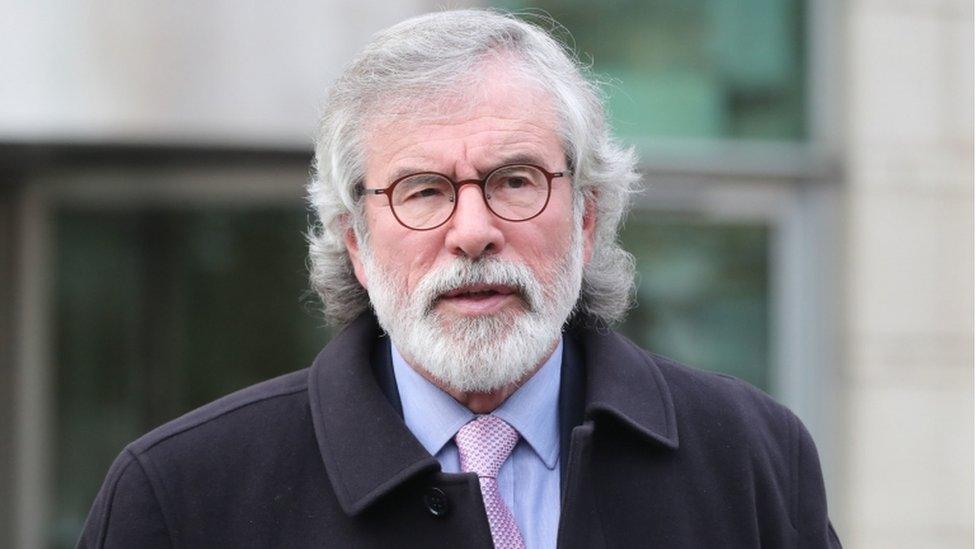
The Maskeys challenged their convictions after Gerry Adams' detention was ruled unlawful.
Based on Gerry Adams' judgment, Mr and Mrs Maskey's legal representatives, Madden & Finucane Solicitors, challenged their convictions.
In court, the Public Prosecution Service accepted that the The Interim Custody Order (ICO) in both Maskey cases were also invalid.
With the appeals unopposed, Lady Chief Justice Dame Siobhan Keegan described the previous determination of the Supreme Court as "binding".
Granting both appeals she confirmed: "The convictions and sentences are quashed."
Outside court, Mr Maskey insisted nobody should have been subjected to internment.
He added that today's outcome "just highlights the series of fundamental problems" around the way Northern Ireland was administered at that time.
- Published9 August 2021
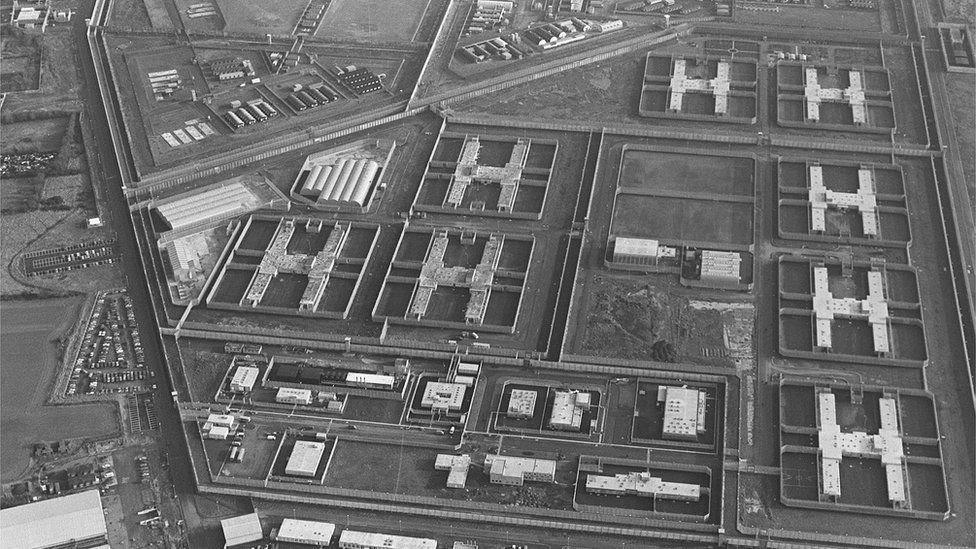
- Published13 May 2020

- Published5 August 2021
